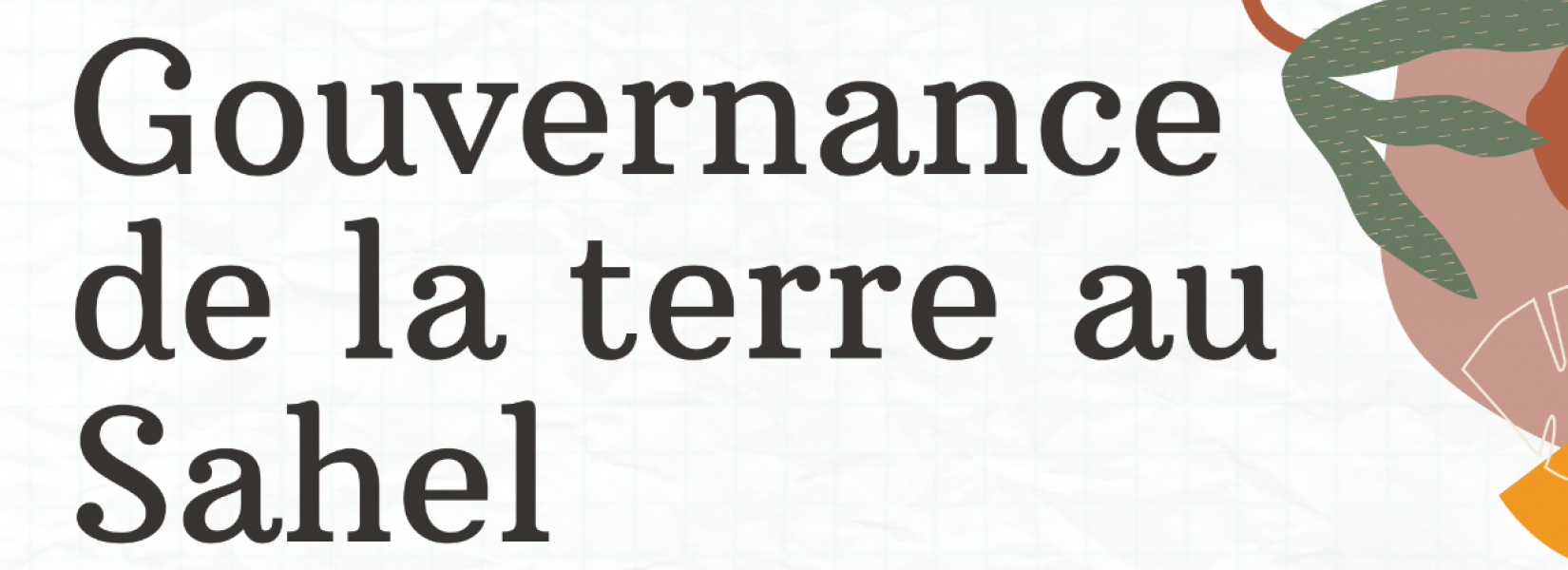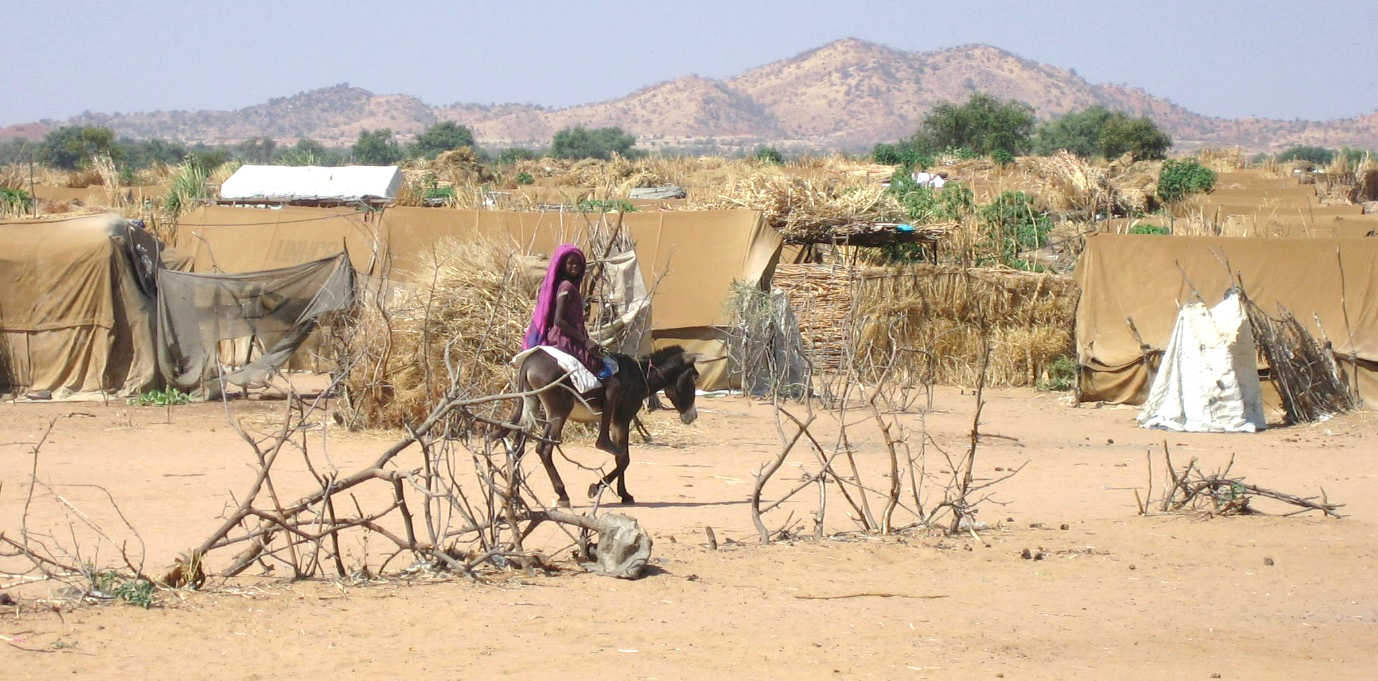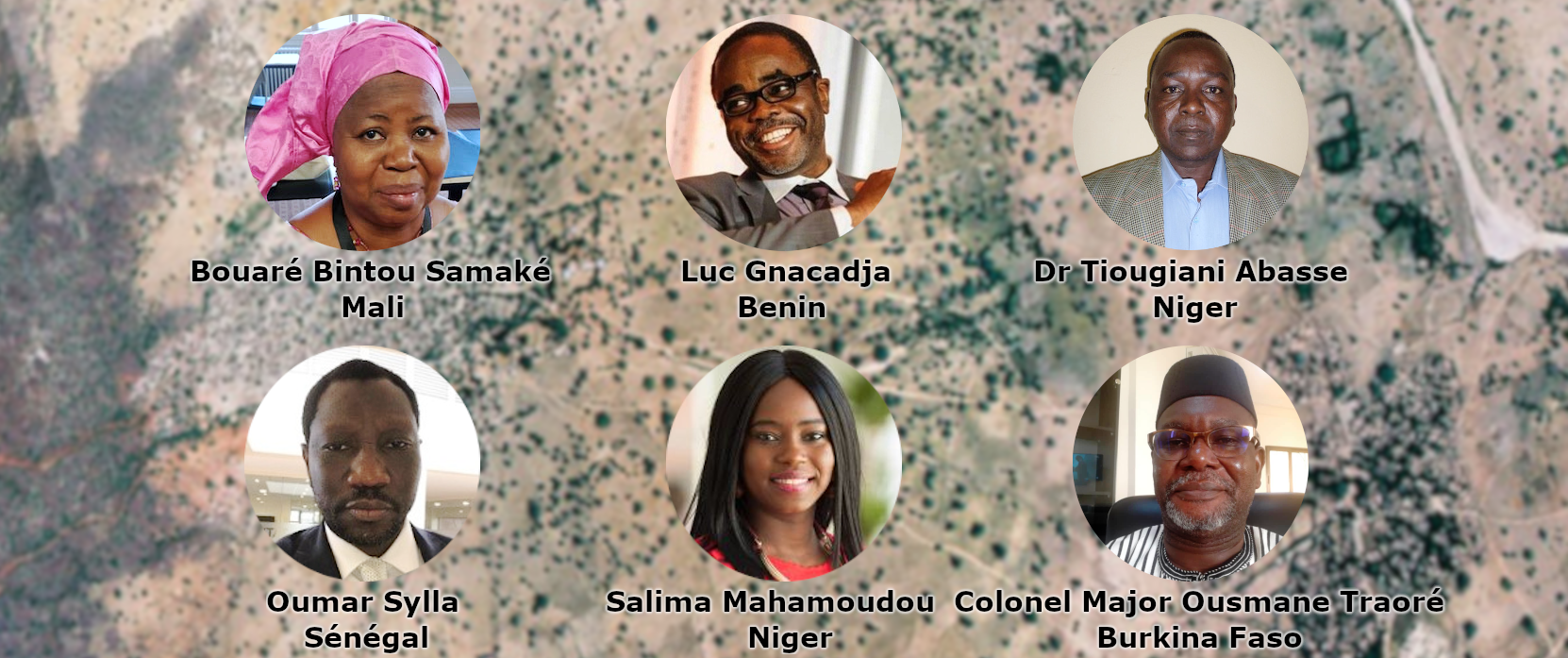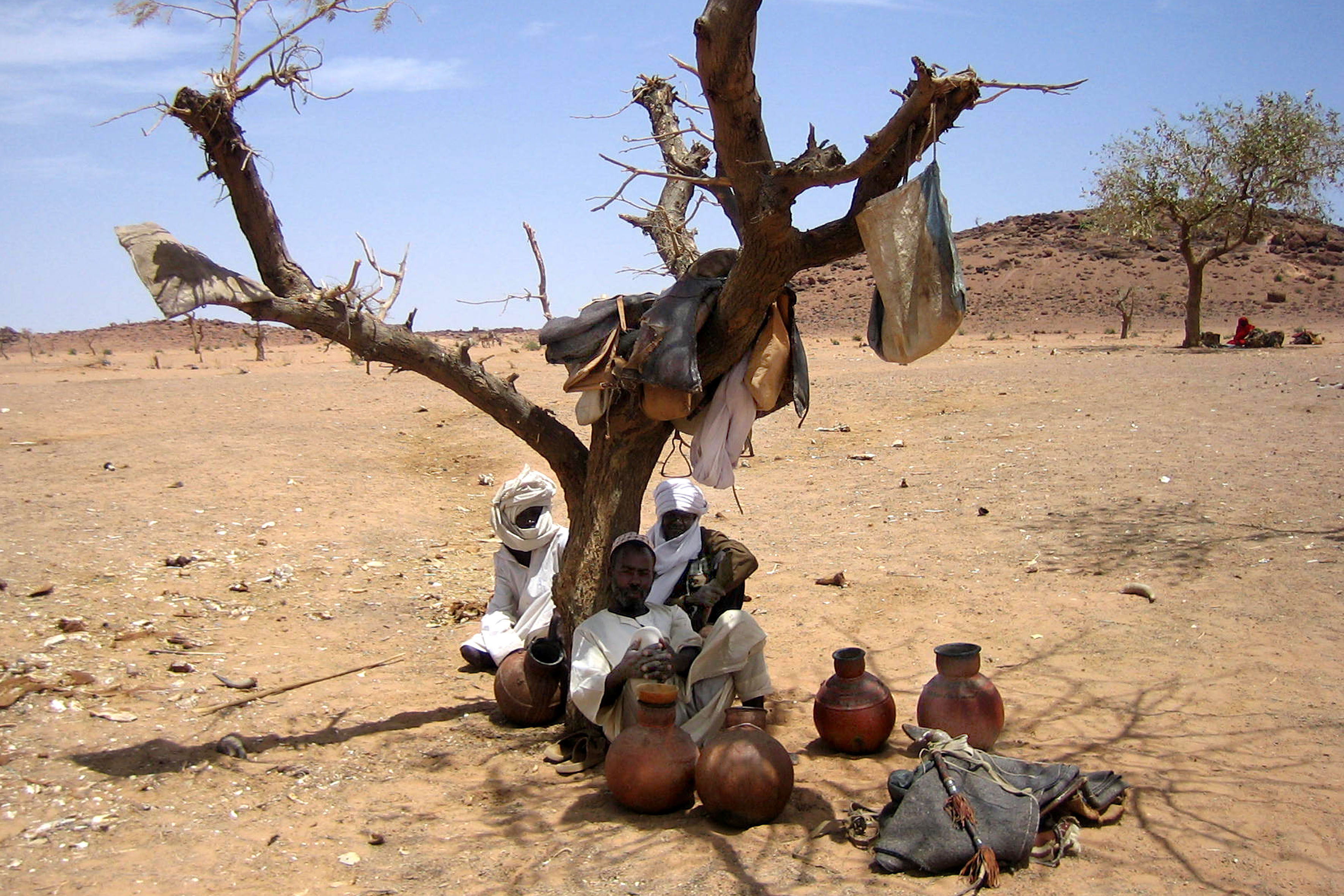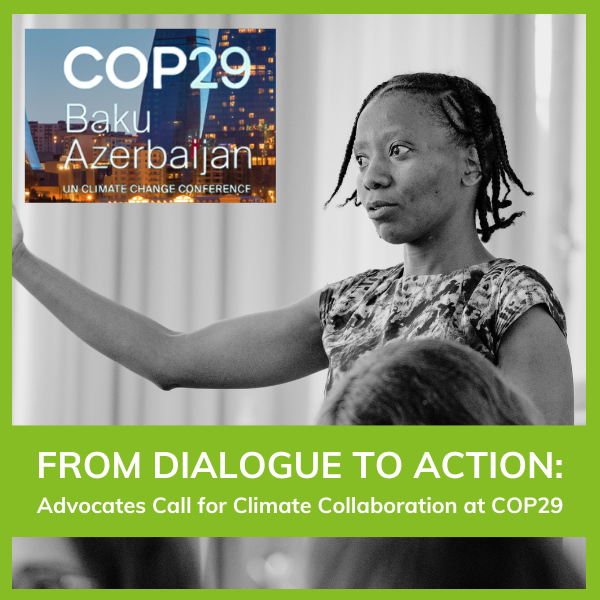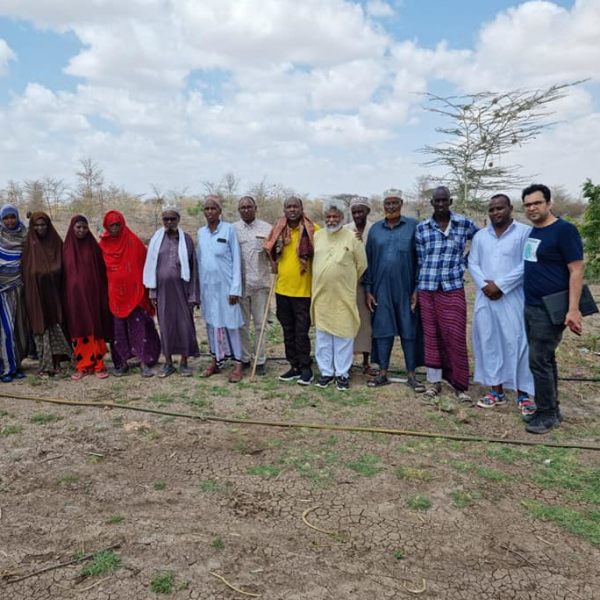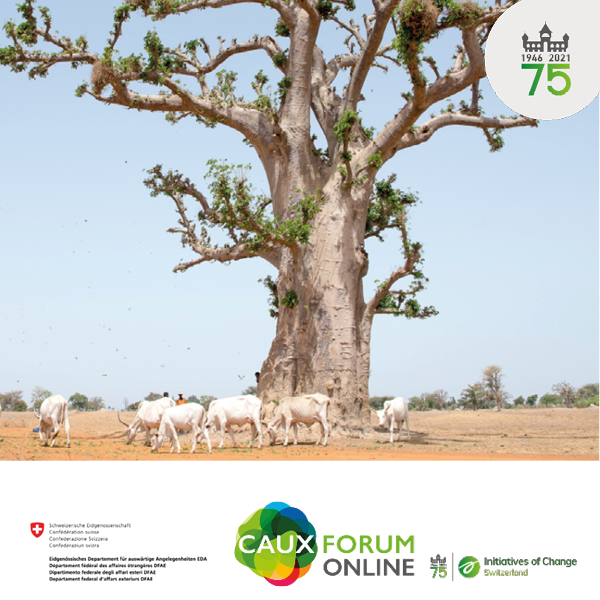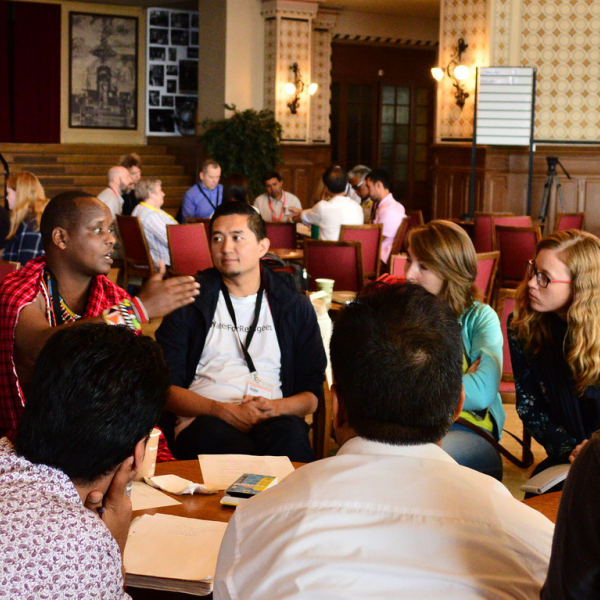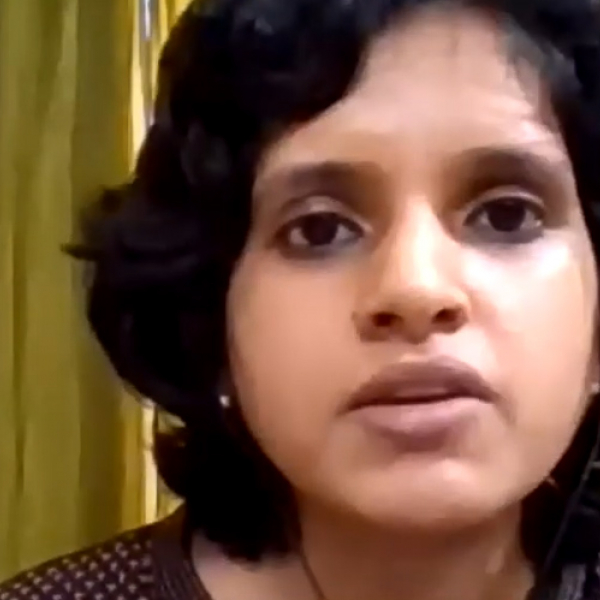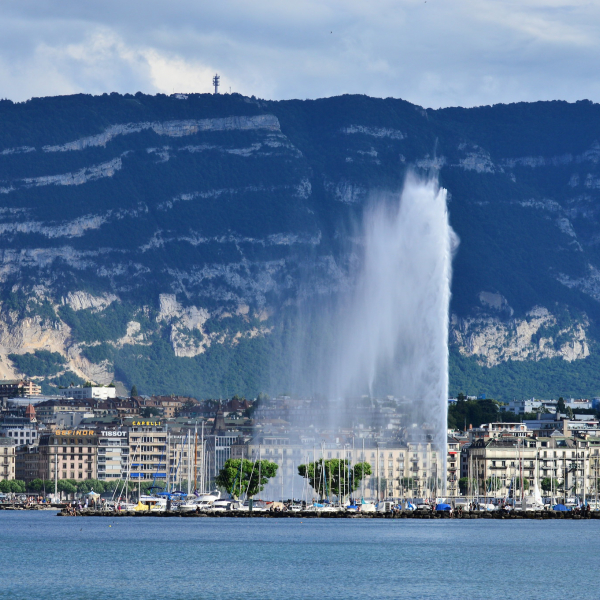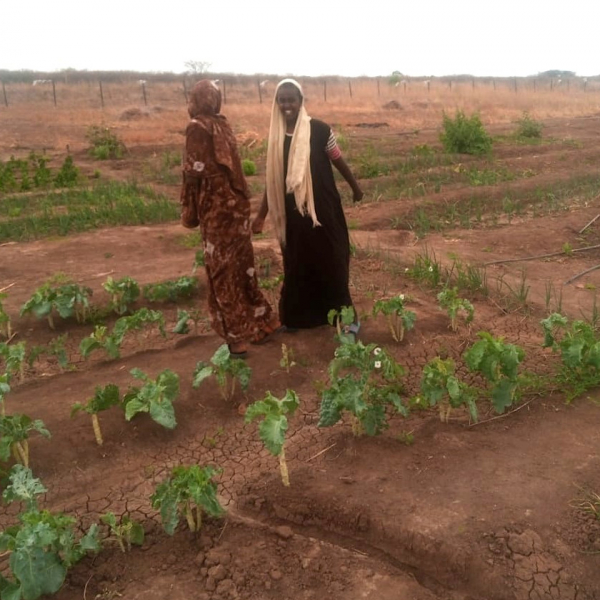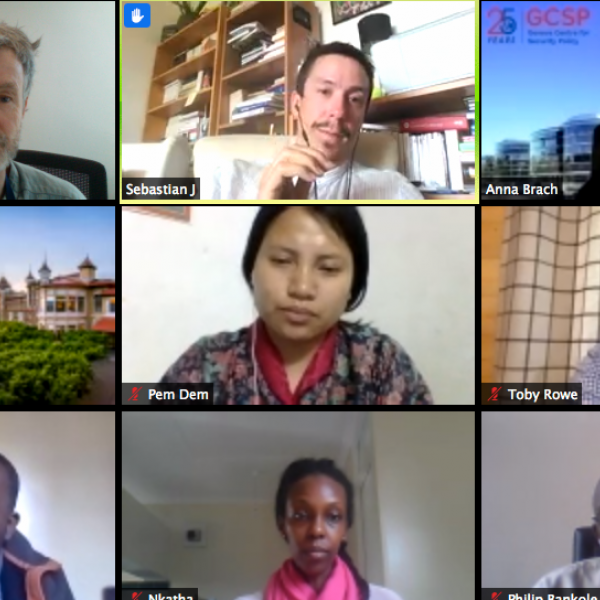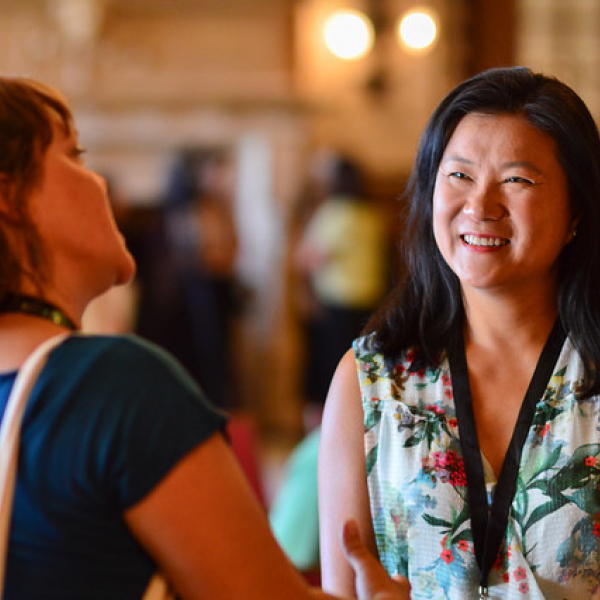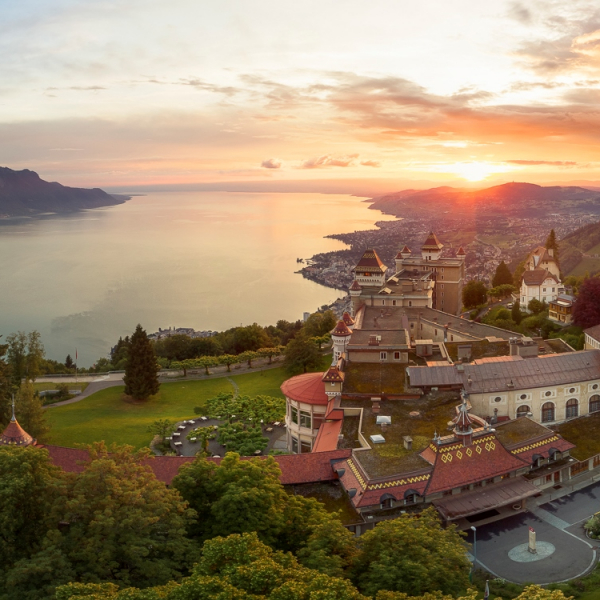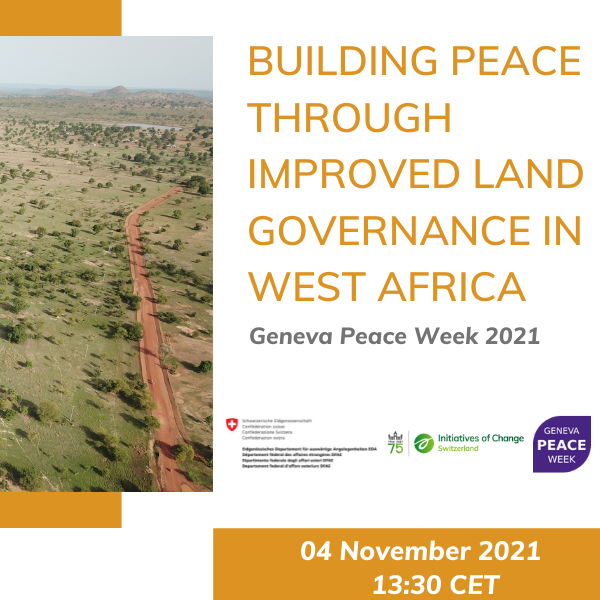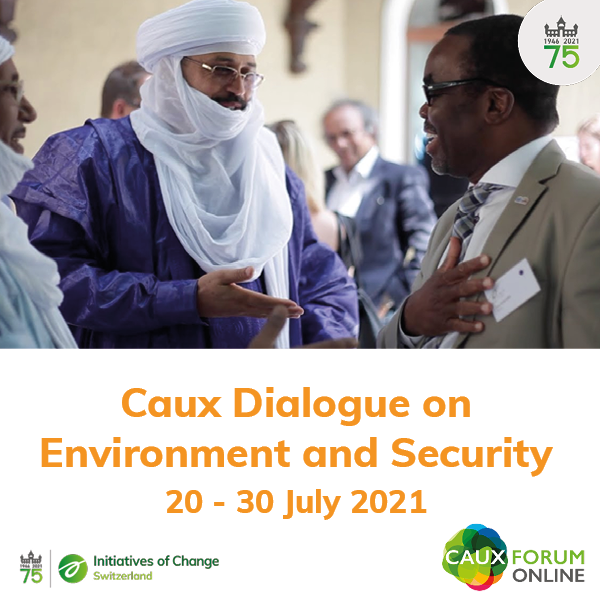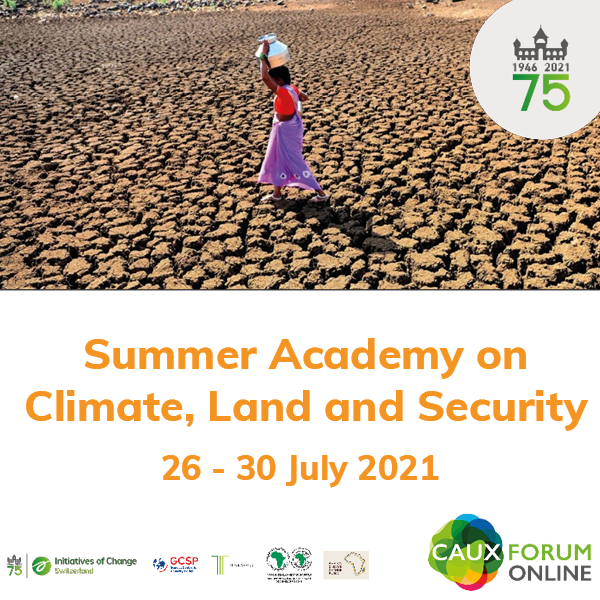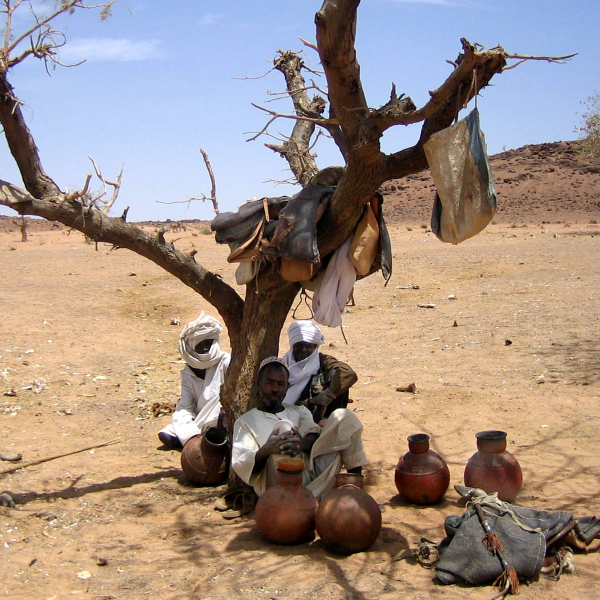Governance of Land in the Sahel
Catalysing human security and building climate resilience through land restoration
01/02/2021
Held on 2nd December 2020, this live webinar followed that of the 10th July 2020 on “Land and Security in Sub-Saharan Africa”, organised for the Caux Forum 2020. The webinar was organised by Initiatives of Change Switzerland and the Swiss Federal Department of Foreign Affairs (Human Security division), in partnership with the Geneva Centre for Security Policy (GCSP), Initiatives for Land, Lives, and Peace, the Environmental Peacebuilding Association and the Global EverGreening Alliance.
The event was chaired by Mr Luc Gnacadja, Founder and President of GPS-Dev (Governance & Policies for Sustainable Development), former Executive Secretary of the UN Convention to Combat Desertification (2007-2013) and former Minister of Environment in Benin (2004-2007). It brought together personalities who are active at the heart of safeguarding land and peace in the Sahel region:
- Her Excellence Mme Bouaré Bintou Founé Samaké, Minister for the Promotion of Women, Children and Family in Mali
- Colonel Major Ousmane Traoré, former Governor of the Eastern Region of Burkina Faso
- Mr Oumar Sylla (Senegal), Acting Head of UN-Habitat in Africa), Nairobi
- Ms Salima Mahamoudou (Niger), Research Associate, Land Accelerator Programme, World Resources Institute, Washington DC
- Dr Abasse Tougiani, Senior researcher, National Institute for Agronomical Research of Niger (INRAN), Niger
The purpose of the webinar was to explore the multi-dimensional links which unite good land management and the security of Sahelian populations, and to discuss the urgent need to confer to women and young people, often the driving forces of agricultural regions, the ability to manage land, thereby reducing the risks that that they are pulled into extremist groups. The webinar brought to the fore the key subject of governance, as nothing is possible without political will and policies stimulating and framing environmental action for security and peace.
In his introduction, Mr Luc Gnacadja emphasised the extent of the fragility of agricultural and pastoral systems in the Sahel, which are threatened by the interconnected challenges of land degradation, insecurity, poor governance and climate change. According to Mr Luc Gnacadja, it is difficult to create a virtuous cycle of change as long as the multisectoral question of land governance has not been addressed. He emphasised a note of hope, however: at the end of two terrible decades of drought in the 1970s and 1980s, restoration movements for degraded land were developed, particularly in Niger, Burkina Faso and Mali, through the process of Farmer Managed Natural Regeneration (FMNR). The techniques of this are now well-documented – and Luc Gnacadja recommended that we turn our attention in this direction, amongst other local solutions, today.
According to Colonel Major Ousmane Traoré, widespread poor and degraded soils coupled with expanding rural-urban migration and the palpable effects of climate change severely limit the supply of land resources for agropastoral resources, and mean that many people in Burkina Faso are landless, despite 86% of the active population living off these resources. The coexistence of traditional and modern land tenure systems and socio-cultural burdens limits women and young people’s access to land. People frequently lose control of their resources due to the lack of appropriate laws, and because of the way current laws are implemented.
All this contributes to growing frustration, which is exploited by violent extremist groups. This frustration also arises when people no longer have access to land which the State decrees belongs to it, and then gives it to exploitative companies to manage, or when the land is protected (for example in nature reserves) and access by local people is prohibited. Extremist groups offer a simple response, giving people the free choice to use the land in exchange for payment. As these resources are often the community’s only economic capital, it’s not surprising that they accept such arrangements. It is therefore urgent to find solutions.
Recognising that land is an asset linked to the economy, but also a social, cultural, traditional and political living space, Colonel Traoré expressed a conviction that the harmonious management of land assets – through soil fertility programmes, for instance – increases productivity, diminishes food security risks and harmful survival strategies (for example selling off livelihoods and productive capacity) and also creates jobs for rural youth – all of which help to reduce the root causes of insecurity and violence.
Mrs Bouaré Bintou Founé Samaké, referring to the fact that non-degraded soils in Mali represent barely 20% of the country's surface area, strongly advocates for improved access to land for young people and women, 80% of whom are directly dependent in agropastoral activities.
She highlighted the fact that women are essentially excluded from managing arable land (as, according to ancestral traditions, land is inherited by the oldest son), and must make do with degraded or abandoned land. There is a law in Mali which stipulates that 10% of arable land must go to the use of women and youth. Unfortunately, since women and youth tend to serve as the labour force and rarely own fields, they struggle to enforce the law. Moreover, unemployment breaks the patience of young people, pushing them to turn to violent extremist groups for alternative and more readily accessible means of survival. These difficulties are compounded by the lack of demarcation of land borders, which increases the vulnerability of women and youth who depend on agricultural areas for their income, and by the impacts of violence which renders going to the market and selling produce impossible.
Mrs Bouaré Samaké is therefore convinced that as long as women and young people are not included in both central and local decision-making processes, no new approaches to land restoration will be possible. The same goes for peacebuilding processes which cannot succeed unless communities, including women and youth, are the principle driving forces.
For Mr Oumar Sylla, the foundation of good land policy is the full participation of local people in the decisions that affect them. The reason that past policies have failed is because blanket decrees are imposed from capital cities without either community ownership, or respect for the basic needs of farmers and herders, or the use of local conflict resolution and land management mechanisms; agricultural policies are centralised and over-sectoralised. This situation often leaves rural youth with only two options: migration or involvement in violent extremist groups. Climate change only serves to exacerbate these realities.
For Mr Oumar Sylla, the social and ecological dimensions of these challenges compels us to put in place multisectoral approaches which have people at their heart. Working on the root causes of these difficulties, strengthening local authorities and putting land and restoration at the centre of governmental programmes is to him an absolute condition for improving the situation of the Sahelian peoples/populations. The international community, including the UN, must actively participate in these efforts, especially by training farmers, providing frameworks for dialogue and forming creative partnerships.
Finally, speaking as one at the heart of the UN system, Mr Oumar Sylla recommends integrating expertise in agriculture and in soil restoration into UN missions across the region, both in policy formed at headquarters and implemented in the field.
Mr Abasse Tougiani explained that Farmer Managed Natural Regeneration has benefits on several fronts - human and social, scientific and climatic - as demonstrated by the experiences in Niger on FMNR, which recently led to the adoption of new government legislation. Water conservation, soil renewal, landscape preservation, a marked improvement in the profitability of the land and renewed confidence of local authorities in their management capacity are the immediate results. This practice relies mainly on the commitment of local communities “who know what they want".
Abasse Tougiani recalled that in 2005, when Niger was threatened by famine, the areas of the country which practiced FMNR had an oversupply of food, and that currently, when threats of violence drive people away, it is often women who stay behind and ensure continued production. Nevertheless, he underlines the difficulties women face in inheriting portions of land which are regarded as ‘’jewels’’ by the men of the family. When a woman marries, she is not entitled to her parents' land inheritance, which often deprives her children of future possessions. Here again we find the same links between insecurity and the use of land, and also the same answers: invest in land restoration to respond to the needs of the population and use dialogue and participative management to do so.
It was finally the turn of Ms Salima Mahamoudou to introduce the dynamics of the private sector in the preservation and development of agricultural areas. Wondering how it would be possible to restore 100 million hectares of degraded land in the Sahel, she argued, supported by several examples, that private investors need to commit to this immense task. We must prove to them that such investments are profitable, and to do so, the research and accumulation of private data are indispensable. This is also what her programme does - bringing together investors and implementers and teaching farmers to sell their services, create business plans, compete regionally, increase their number of employees, and take into account the ecological and climatic impacts of their work.
Land restoration is not only a question for development experts, but also a question of economic gain. She notes, nevertheless, that politically instable or violent areas scare investors and that her organisation has had to cease its activities around Diffa in Niger because of extremist groups. She also acknowledged that currently women play almost no role in entrepreneurship because they “do not have access to land”, except when in cooperatives. She remarked on the seriousness of this and how it should incentivise authorities to be actively engaged.
At the end of this rich and hope-giving webinar, an important point stands out: “May each make their own what they have learned from the others!” The Chair, Luc Gnacadja, also paved the way for a follow-up to this exchange: “See you next time to discuss the results!”
Facilitators
Dr Alan Channer, land restoration and peacebuilding specialist, remarked that, while internet technology allows us to communicate very easily, we are nonetheless confronted with the challenge of understanding each other. He underlined the importance of this webinar in fostering understanding beyond the borders of country, discipline, and background.
Mrs Carol Mottet, Senior Adviser in the Human Security Division of the Swiss Federal Department of Foreign Affairs, is the Head of a programme for the prevention of violent extremism. She helped to establish the link between environment and security experts in this webinar.
Partners
